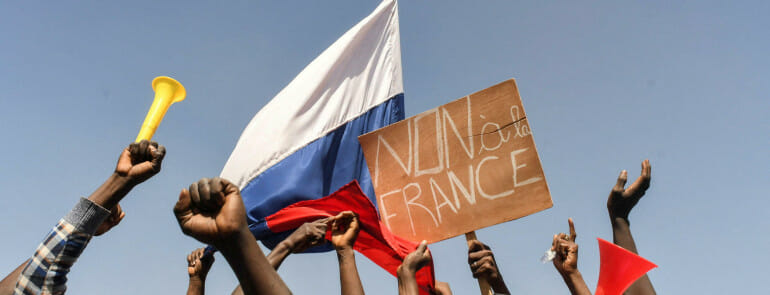For decades, French played a dominant role in Mali’s official affairs, permeating governmental institutions, education, and public administration. However, on 22nd July, Colonel Assimi Goïta, the leader of the military, Junta, enacted a new law that replaces French with 13 national languages as the official means of communication; Bambara, Bobo, Bozo, Dogon, Fula, Hassaniya, Kassonke, Maninke, Minyanka, Senufo, Songhay languages, Soninke, and Tamasheq.
This is a great shift in Mali’s history marking the breaking away from the legacy of colonisation that had imposed French as the primary language since their independence in 1960, furthermore, it is a testament to the nation’s desire to preserve its cultural heritage but also an essential step toward inclusive governance and representation.

Mali has witnessed a series of coups, with two occurring in August 2020 and May 2021 fostering the decision to shift away from French as the official language reflects the Junta’s commitment to rebuilding the nation. In the aftermath of these events, Junta took control, pledging to restore stability and pave the way for democratic elections, initially scheduled for February 2022 but later postponed to February 2024. By enacting the new constitution, Mali is signaling its intention to foster unity and harmonize its diverse communities, thereby charting a path towards a stronger and more resilient nation.
Unfortunately, this transition from French as the official language to a multilingual approach is not without its challenges. Adapting administrative, educational and legal systems to accommodate multiple languages will require careful planning and investment.
The saying ‘no pain no gain’ comes to mind as this will empower Mali citizens to use their native languages thereby fostering a stronger sense of cultural identity, pride and ultimately enhancing social cohesion and national unity.
Mali’s decision comes amidst a backdrop of growing anti-France sentiments across West Africa. The perception of France’s military and political interference in the region has led to calls for greater autonomy and independence among African nations. Mali’s move to distance itself from its colonial past sends a powerful message to the region and the world, reaffirming its commitment to self-determination and sovereignty.

As Mali moves forward with its constitutional change to drop French as the official language, it marks a transformative moment in the nation’s history. By embracing its linguistic diversity and giving official recognition to local and national languages, Mali is breaking free from its colonial past and embracing its cultural heritage. This step towards inclusivity and unity provides an opportunity for the nation to rebuild, strengthen its democracy and forge a path towards a prosperous and united future.
The world will be watching as Mali navigates this momentous transition, providing valuable insights into the power of language in shaping a nation’s identity and resilience.

